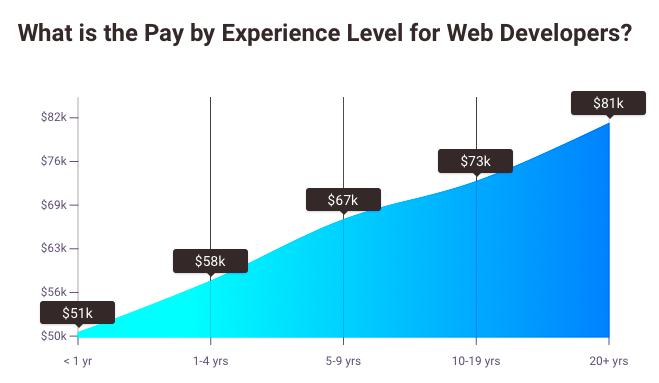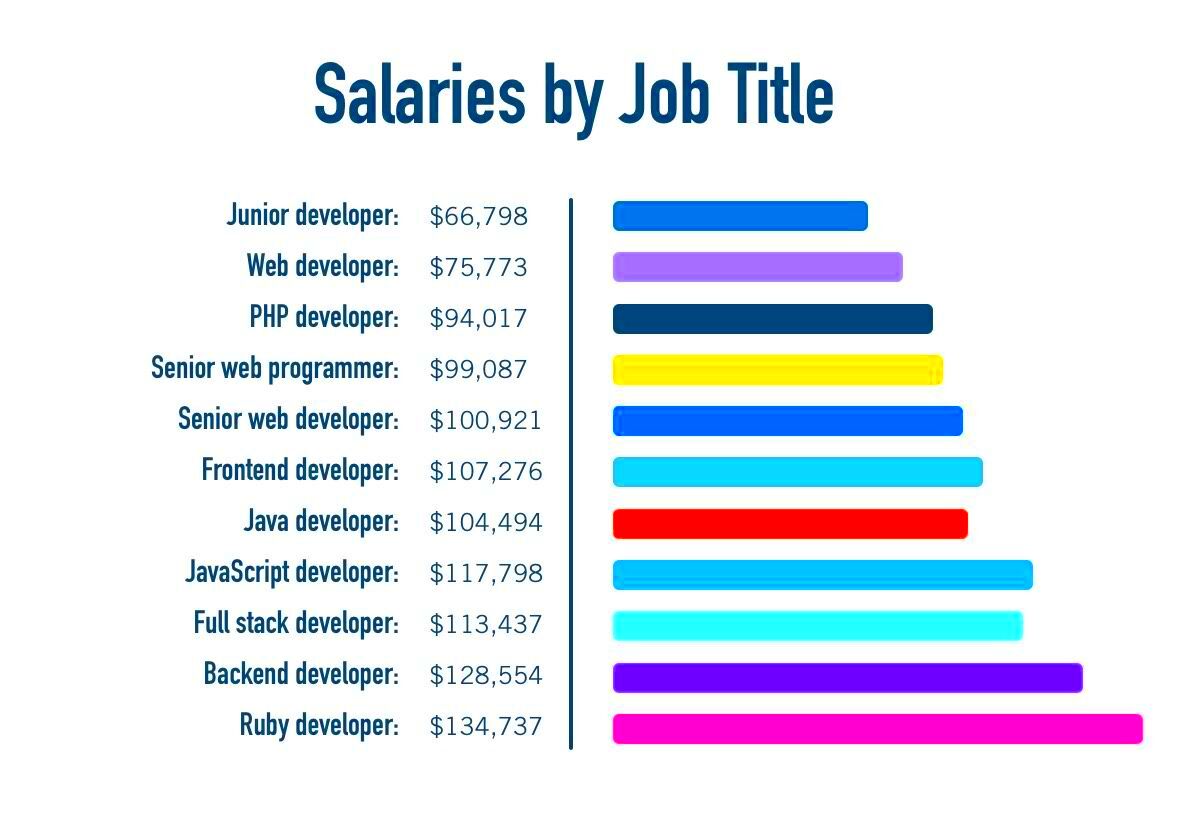Web development freelancing offers a flexible way to earn a living while creating websites and applications. Many businesses are looking for skilled web developers who can help them establish a strong online presence. Freelancing in this field allows you to choose your projects, set your hours, and work from anywhere. As the demand for web development skills continues to grow, more people are considering this career path. In this blog post, we will explore the role of web developers, factors affecting their earnings, and tips for maximizing income.
Understanding the Role of a Web Developer

A web developer is responsible for building and maintaining websites. This role can vary widely depending on the project and the client's needs. Generally, web developers fall into three main categories:
- Front-end Developers: They focus on the visual aspects of a website, ensuring that users have a great experience. This includes using languages like HTML, CSS, and JavaScript.
- Back-end Developers: These developers handle the server-side of web applications. They work with databases and server logic, using languages like PHP, Python, or Ruby.
- Full-stack Developers: Full-stack developers have skills in both front-end and back-end development. They can manage all aspects of a web project, making them highly versatile.
In addition to coding, web developers often need to communicate with clients, understand project requirements, and troubleshoot issues. A strong understanding of design principles and user experience is also beneficial.
Also Read This: Understanding How the Fiverr Revenue Card Works
Factors That Influence Web Developer Earnings

Several factors can impact how much a freelance web developer earns. Here are some key considerations:
- Experience Level: More experienced developers typically command higher rates. Beginners may start at a lower hourly rate but can increase their income as they build skills.
- Location: Earnings can vary by region. Developers in major cities often earn more due to higher demand and cost of living.
- Specialization: Developers with expertise in in-demand technologies, such as React or Angular, can often charge more than those with general skills.
- Project Complexity: More complex projects require more time and expertise, allowing developers to charge higher fees.
- Client Type: Working with larger companies or agencies often leads to higher pay compared to small businesses or startups.
Overall, understanding these factors can help web developers set competitive rates and maximize their earnings in the freelancing market.
Also Read This: How to Fix: Fiverr Denied My Gig
Average Income of Freelance Web Developers
Understanding the average income of freelance web developers can help set realistic expectations for those entering the field. On average, freelance web developers earn between $50 to $150 per hour, depending on their skills and experience. However, this can vary widely based on several factors, including the developer's location and specialization.
Here’s a rough breakdown of what freelance web developers might expect to earn based on their experience:
| Experience Level | Average Hourly Rate |
|---|---|
| Entry-Level (0-2 years) | $25 - $50 |
| Mid-Level (2-5 years) | $50 - $100 |
| Experienced (5+ years) | $100 - $150+ |
Additionally, project-based fees can range from $500 for simple websites to $10,000 or more for complex web applications. Ultimately, the income of freelance web developers can vary greatly, and those who continually upgrade their skills and market themselves effectively can see substantial growth in their earnings over time.
Also Read This: How to Sell Traffic Service on Fiverr
Ways to Increase Earnings as a Web Developer
Boosting your income as a freelance web developer is all about strategy and continuous improvement. Here are some effective ways to increase your earnings:
- Specialize in High-Demand Skills: Learn technologies that are in high demand, such as React, Angular, or Node.js. Specialization can allow you to charge higher rates.
- Build a Strong Portfolio: Showcase your best work. A strong portfolio can attract more clients and justify higher fees.
- Network Actively: Attend industry meetups, join online communities, and connect with potential clients. Referrals can lead to more projects.
- Offer Maintenance Packages: After completing a project, offer ongoing support or maintenance. This can create a steady stream of income.
- Upsell Your Services: If a client hires you for a website, suggest additional services like SEO or content writing to increase the project’s value.
By implementing these strategies, freelance web developers can enhance their income potential and create a more sustainable freelance career.
Also Read This: How to Secure Freelance Writing Jobs
Common Platforms for Finding Web Development Gigs
Finding freelance web development gigs is easier than ever, thanks to various online platforms. Here are some popular options where developers can find work:
- Upwork: A well-known platform that connects freelancers with clients across various fields, including web development.
- Fiverr: This platform allows developers to create service listings, making it easy for clients to find them.
- Freelancer: Similar to Upwork, Freelancer offers a wide range of projects, allowing developers to bid on jobs that match their skills.
- Guru: This platform offers a user-friendly interface and various job categories, making it easy to connect with clients.
- LinkedIn: A great resource for networking and finding freelance opportunities through job postings and connections.
Each platform has its own strengths and weaknesses, so it’s worth exploring multiple sites to find the best opportunities that suit your skills and preferences. By leveraging these platforms, freelance web developers can build a robust client base and enjoy a successful freelancing career.
Also Read This: Can You Do Stuff with Animals on Fiverr?
Building a Strong Portfolio to Attract Clients
Creating a strong portfolio is essential for freelance web developers looking to attract clients. A portfolio showcases your skills, highlights your best work, and demonstrates your ability to deliver results. Here are some steps to help you build an impressive portfolio:
- Select Your Best Work: Choose a variety of projects that showcase different skills, such as front-end development, back-end programming, or full-stack solutions. Quality is more important than quantity.
- Include Case Studies: For each project, write a brief case study that explains the problem, your approach, and the outcome. This helps potential clients understand your thought process and problem-solving abilities.
- Highlight Your Skills: Make sure to mention the technologies and tools you used in each project, such as HTML, CSS, JavaScript, or specific frameworks.
- Keep It Updated: Regularly update your portfolio with new projects to keep it fresh and relevant. Remove outdated work that no longer represents your current skill level.
- Make It Visually Appealing: Design your portfolio website to reflect your design sensibility. A clean, professional layout can make a strong impression on potential clients.
Remember, your portfolio is often the first impression potential clients will have of you. Investing time into creating a polished and professional portfolio can significantly increase your chances of landing projects.
Also Read This: Samples of Fiverr Gig Description – Get orders easily
Frequently Asked Questions about Web Developer Earnings
As freelance web development becomes more popular, many aspiring developers have questions about earnings. Here are some common inquiries:
- What is the average hourly rate for freelance web developers?
The average hourly rate ranges from $50 to $150, depending on experience and specialization. - Can I earn a steady income as a freelance web developer?
Yes, many freelance developers build a consistent income by securing ongoing projects or maintaining long-term client relationships. - How can I increase my rates?
As you gain experience and build a strong portfolio, you can gradually raise your rates to reflect your growing expertise. - Are there any expenses I should consider?
Yes, freelancers often have expenses like software licenses, website hosting, and taxes. It’s important to factor these into your pricing. - How do I negotiate my rates with clients?
Be confident in your skills, do your research on industry rates, and communicate your value to negotiate effectively.
Addressing these FAQs can help aspiring web developers better understand the financial aspects of their freelance careers and set realistic expectations.
Conclusion and Key Takeaways
In conclusion, freelance web development offers a rewarding career path with the potential for high earnings and flexibility. Here are the key takeaways from this post:
- Understanding the average income of web developers can help set realistic financial goals.
- Building a strong portfolio is crucial for attracting clients and showcasing your skills.
- Strategies such as specializing in high-demand skills and networking can significantly increase your earnings.
- Utilizing common freelance platforms can help you find projects that match your skills and interests.
By following the insights shared in this post, you can navigate the freelance web development landscape with confidence and increase your chances of success. Remember, continuous learning and adapting to market trends will always keep you ahead in this ever-evolving field.




